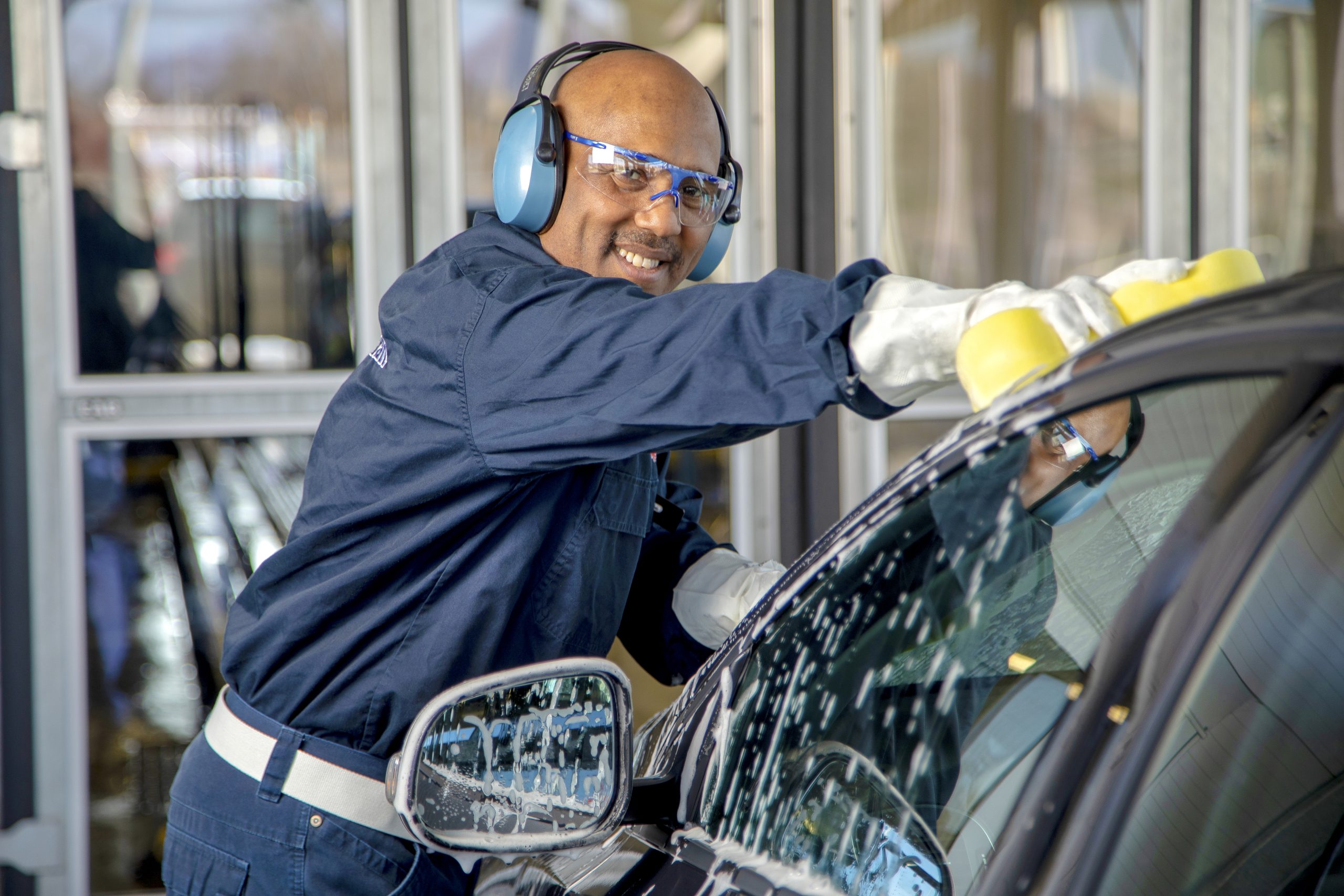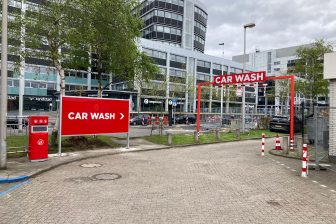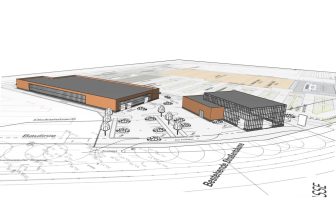
The high end-approach of Mjuk Biltvätt
Mjuk means soft in Swedish. It has also been synonymous with top-quality car washing for over 25 years in the Scandinavian country. Mjuk Biltvätt is running 16 car washes in and around Stockholm, Malmö and Gothenburg. More are underway. We got to speak to CEO Andreas Thomé about their combination of tunnel- and handwashing.
Washing in a nordic country certainly has its challenges. In winter, temperatures sometimes drop to -30 Celsius. Furthermore, in parts of the country daylight hours are limited to a few hours.
Still, Swedish company Mjuk Biltvätt washes most cars during the dark months, we learn from CEO Andreas Thomé, who is speaking to Carwashpro.com from his head office in Gothenburg. “Between November and May we wash about 70% of the cars we wash all year-round.”
Having said that, in truly harsh winter conditions everything comes to a grinding halt. “When the temperature drops below -10 Celsius, most people don’t want to wash their car anymore. For us it’s best if it’s around freezing point. Because then the cars become really dirty. A dry day after a week of snow is perfect for us.”
Another specific element is the studded snow tires that many Swedish and Norwegian cars are equipped with. “These tires produce a lot of asphalt particles on the cars. Combined with all the salt from the roads, it’s an ideal recipe for dirt.”
Some history
Mjuk Biltvätt was started in 1997 by a young entrepreneur named Henrik Kronlid. Together with his brother and father he opened his first car wash in Sävedalen in Partille, next to E20.
It was this particular car wash where Andreas Thomé began his career as a wash assistant, 20 years ago. Today, he and Kronlid co-own a company with 16 locations and roughly 100 employees.
text continues under photo

Mjuk aims at ‘high end-customers’ in and around the big cities in Sweden. Drivers of expensive cars who are willing to pay a bit more for a combination of hand washing and conveyor washing.
A wash that still only takes seven minutes.
It’s a fairly labor-intensive process, with two employees prepping a car upon entry and providing prewash before the vehicle is put on a conveyor by American manufacturer MacNeil. “Spots that are difficult to clean by machine like under the mirrors and the windscreen wipers get extra attention from our staff,” Thomé clarifies.
The conveyor with on-demand loading has a capacity of about 50 to 60 cars an hour. “The heavy equipment is by MacNeil but we’ve added some additional elements. “Like the pre-wash process, which is designed in-house and primarily utilizes equipment from Mosmatic. We’ve also changed the dryers recently, because we wanted to limit the noise. So in our newer car washes we use dryers by Proto-Vest. They are more effective and more quiet.”
An app as centerpiece
In addition, Mjuk built their own software which controls the MacNeil hardware. The license plate recognition that’s linked to it is also built in-house. “Through the license plate number, customers gain access after which the software immediately sees which program the customer has ordered.
Our employees in the hall are also able to check when the customer was last in and whether something was wrong with the wash quality. For example, if the customer was dissatisfied with the rims, these will receive extra attention this time. But it works the other way as well. If the customer came a few days ago, it would mean a very easy and quick wash this time.”
All communication with the customer is done through the app, as are payments and feedback after the wash. Because of Covid-19, the implementation of that app was accelerated and now forms the core of the operation. “About 85% of our customers use the app”, says Thomé. “Three-quarters of them also have a subscription with us.”
Because Mjuk is operating in the higher segment, 70-75% of their clientele are business drivers. Thanks to license plate recognition, an invoice automatically goes to the leasing company, should this be needed. It’s all very customer friendly and hassle free.
text continues under photo

Car dealers
Instead of aggressively advertising on social media or commissioning expensive advertising videos, Mjuk Biltvätt chooses a very clever way to acquire new customers: through car dealers. Thomé: “When you buy a new car, you get a voucher for a free wash at Mjuk Biltvätt. People who have just bought an expensive Mercedes or Audi are probably very interested in keeping it clean and fresh. About 30 percent of these new car owners actually become new customers.”
Sweden is known for its many lakes and vast forests so it’s no surprise sustainability is front of mind with Mjuk. “We are in the lead when it comes to environmentally friendly chemicals”, says Thomé. Mjuk is a proud member of Hållbar Biltvätt, an organization dedicated to sustainable car washing.
Although Mjuk filters all the waste water they have used for car washing (about 90 L per car), only 50 percent is reused, we learn to our surprise. “Water is not the problem in Sweden”, clarifies the CEO. “We have plenty of water here.The main issue is its pollution.” So what we do is we take out metals like zinc and copper from our wastewater and properly dispose of these pollutants.”
Moreover, recycled water is very aggressive, Mjuk found out. “It not only ruins the cars but it also affects the carwash machines and even the car wash itself.”
Inclusive
On the Mjuk website you can easily scroll through all the staff the Gothenburg-based company is employing. It immediately becomes clear it is a very inclusive company, and they take pride in that. Many Mjuk employees have a migration background, partly because the labor market in car washing is quite challenging. It’s easy to find very good staff among the people that have just arrived in Sweden,” says Thomé, who is proud of the fact that the company has 15 nationalities on board.
Mjuk has even adapted its training program so that new employees who do not yet speak Swedish understand how best to wash a car.
Once on board, there are plenty of opportunities to climb the ladder. The CEO, who himself is a good example of this, cites his colleague Esayas Tesfay. “When he started with us 14 years ago, he barely spoke Swedish. Now he is the manager of our busiest branch in Högsbo and a star in customer communication.”
text continues under photo

Like in most Scandinavian countries, labor is expensive. That explains why many of the Mjuk Biltvätt branches close as early as 6 or 7 p.m. “To keep them employed in the evening is simply more expensive for us. We rather open early than stay open late. But it also has to do with the fact many of our customers are business car owners. These people wash their cars mostly during the day.”
Competition
Asked about the main competition, Thomé mentions the big oil companies such as Circle K, OK and Shell. These firms have a dense network and often also offer subscription carwashing. Wash World, a Danish company that has been active in Sweden since 2018 is seen as less of a competitor. “Their business model is different from ours. They settle in smaller cities, where it’s easier to find good spots. We concentrate on the high-end customers in big cities like Stockholm, Gothenburg and Malmö.”
There, it is sometimes difficult to find a suitable location, we learn. “Over the last 10 years, there has been an explosion of fast food restaurants in Sweden and they, like us, hunt for the best locations along the main roads.”
Still, Mjuk Biltvätt hopes to open another one or two new locations by 2024, including a second detailing studio.
How was your wash?
When customers exit the car wash, the Mjuk app asks for a review. They get three simple questions : if the experience was good, if the car was clean and if the staff was friendly and helpful. This is where it gets interesting. Because we learned earlier that many of the staff do not interact vocally with the customers who stay in the car. But sign language and a smile do the trick. “We have given our people instructions to use their hands. It really makes a difference if you give a customer a thumbs up and wave him or her goodbye after the wash. If you forget this, the score goes down very fast. It even affects the question “was your car clean?”
Which illustrates: a smile goes a long way.
Also read:



